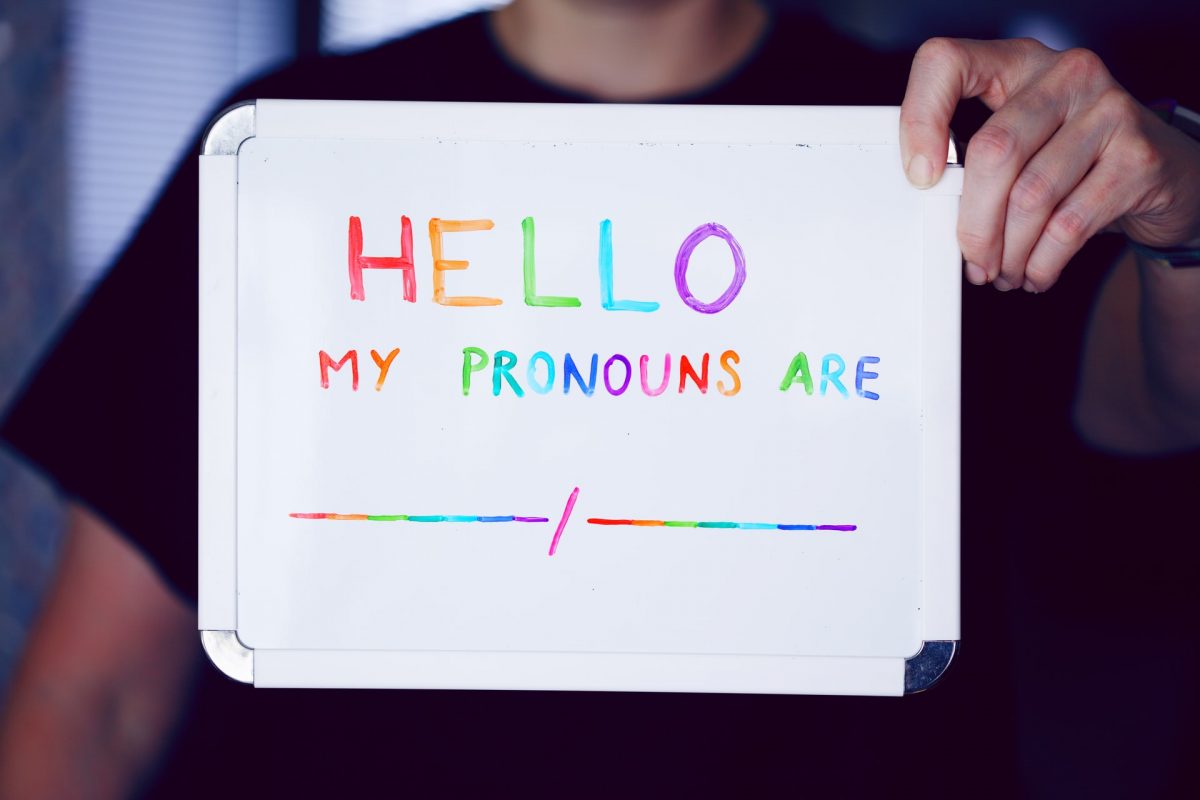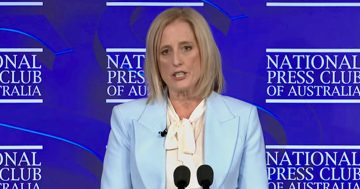
If you identify with the gender you were assigned at birth, gender-neutral legislation changes nothing. Photo: Sharon McCutcheon.
Earlier this week, Attorney-General Shane Rattenbury announced that some ACT laws will be revised to use gender-neutral language to be more inclusive of gender diversity.
It’s a pretty simple change. Instead of using ‘he/him’ or ‘she/her’ when referencing the generic ‘citizen’ in laws, the language will now use ‘they/them’. It’s such a minor difference that will have a significant impact on non-binary Canberrans and literally no impact on the rest of us.
But the way some people are carrying on about the change, you would think everyone was being forced to transition into gender-neutral territory in their day-to-day lives.
I’m here to reassure you – if you identify with the gender you were assigned at birth, this will change absolutely nothing for you. You’re one of the lucky ones. You get to live your life with no dissonance between how the world sees you and how you see yourself. Be grateful for that – it’s a privilege.
Just ask a trans or non-binary person how much discrimination, misgendering and barriers they face daily and they’ll confirm that.
Reading the comments on the Riotact news piece on the language change in legislation, I was honestly flabbergasted.
One woman wrote: “I am offended. I am a woman, I am she, I am her.”
Well, good for you – that’s fantastic. You’ll be pleased to hear that legislation isn’t written with a specific individual in mind – it’s there to apply to all of us. You can go about your daily life as a ‘she/her’ with no objections from anyone.
READ ALSO: I’m a church minister. Here’s why I think the ACT should lead on drug reform
Traditionally, the English language has deferred to male pronouns when referring to every person in contexts like the law. We’ve all had to adjust that for ourselves and accept that the world has been designed around the default male subject position because of the patriarchy.
And while some grammar purists will argue that using ‘they/them’ as a singular pronoun is grammatically incorrect, that’s a myth.
They/them have been used as singular pronouns for centuries. Also, hot tip, language is constantly changing. You’ll be shocked to learn that we regularly change the meaning of words through everyday usage; sometimes we even invent new ones! Wacky, I know, but that’s the power of human innovation.
The fact is that gender-neutral pronouns have a massive impact on the people they are relevant to – non-binary people, gender queer folk and the gender diverse. If you don’t identify with those cohorts, then this really isn’t about you, and your outrage at a change that is designed to benefit others with no impact on you is just a sure sign of your privilege.
Personally, I really struggle to understand why some people choose gender diversity as their hill to die on when they’re cis-gendered. Why are you so obsessed with someone else’s identity? How does it affect you if so-and-so prefers to be referred to as ‘they/them’ and not the gendered pronouns you’ve assumed for them? How hard is it to remember a small detail for someone and exercise it in your interactions with them?
And for all of you claiming that this is a waste of government time and energy, I believe the saying goes that we can walk and chew gum at the same time. Turns out our government can increase gender inclusion in our Territory and continue to deliver on our healthcare, housing and education needs.
If you have a problem with the ACT Government’s approach to those areas of policy, go and critique those policies. Gender-neutral language in legislation has nothing to do with that other than making the policies more accessible for all Canberrans.
My advice to all of you triggered cis-gendered people is to repeat this sentence a few times until it sinks in, and then let it go: not everything is about me, not everything is about me, not everything is about me.
I’ll be over here celebrating this progress for my non-binary and genderqueer friends and community.





















